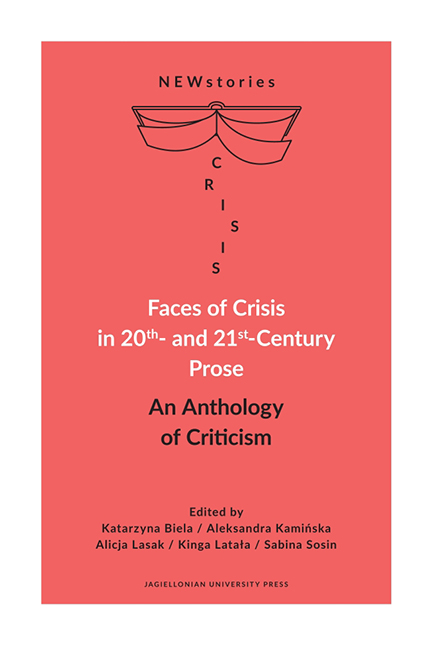Dissociation of the Female Protagonist in Ann Quin’s Passages
Published online by Cambridge University Press: 16 July 2022
Summary
Abstract: Ann Quin proved herself to be a brilliant illustrator of various complex issues that tear apart troubled souls. During her short life ended in suicide in 1973 she gave life to four novels: Berg(1964), Three(1966), Passages(1969), and Tripticks(1972), all of which present unique literary perspectives on depression, trauma, and personality disorders. This study focuses on Quin's penultimate novel, Passages, and examines the narrative devices used by the writer to transcribe the female protagonist's identity crisis onto its pages. The aim of this analysis is to show that the unnamed woman, caught in a vicious circle of her failed relationship and an aimless travel through Mediterranean landscapes, suffers from a dissociative identity disorder. In psychology, dissociation is defined as an emotional detachment from one's surroundings without losing the ability of maintaining control over reality. More often than not, it indicates the presence of psychological trauma and is considered self-defence mechanism aimed at minimising mental repercussions of an emotionally disturbing experience. By separating her psyche from her body reflected in shifts in narration and textual splits, Quin's protagonist is able to endure the hardships of her love life and continue what seems to be a futile quest in search of her long-lost brother.
Ann Quin was born in 1936 into a broken, abusive family and soon became one of those deeply sensitive artists whose star shined too bright and burnt out too fast. Virtually unknown by contemporary scholars and readers alike, she was, according to her fellow avant-gardist, B. S. Johnson, one of the few authors “who [were] writing as though it mattered” (1973: 29). During her short career, she gave life to four semi-autobiographical novels—Berg (1964), Three (1966), Passages (1969), and Tripticks (1972)—all of which present unique literary perspectives on trauma, escapism, and paranoia. It was her first novel published when she was only 28 which made her the first woman in history to receive the D. H. Lawrence Fellowship in 1964 and the Harkness Fellowship “for the most promising Commonwealth writer under the age of 30” (Buckeye 2013: 13) a year later.
- Type
- Chapter
- Information
- Faces of Crisis in 20th- and 21st-Century ProseAn Anthology of Criticism, pp. 61 - 70Publisher: Jagiellonian University PressPrint publication year: 2020



